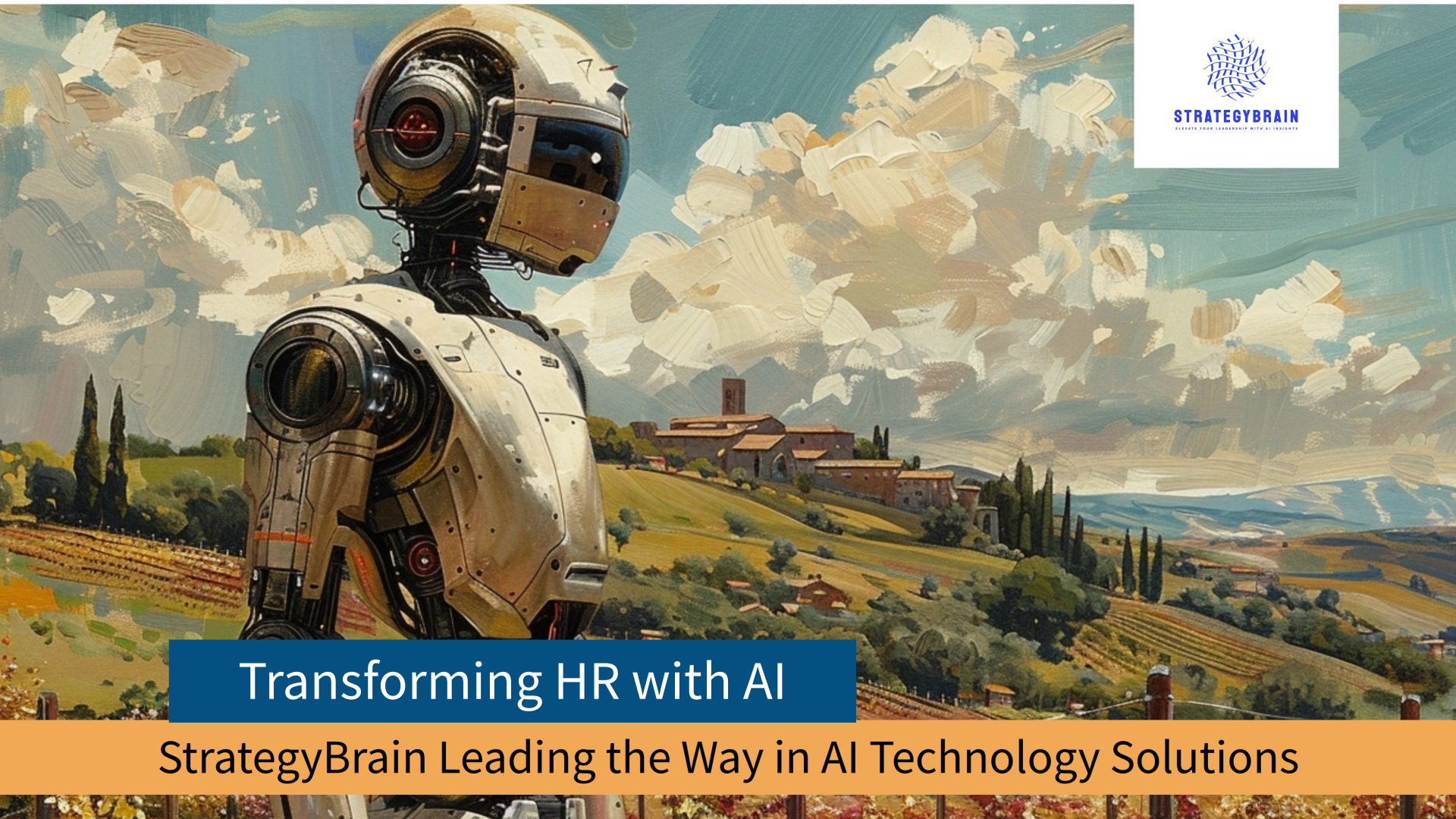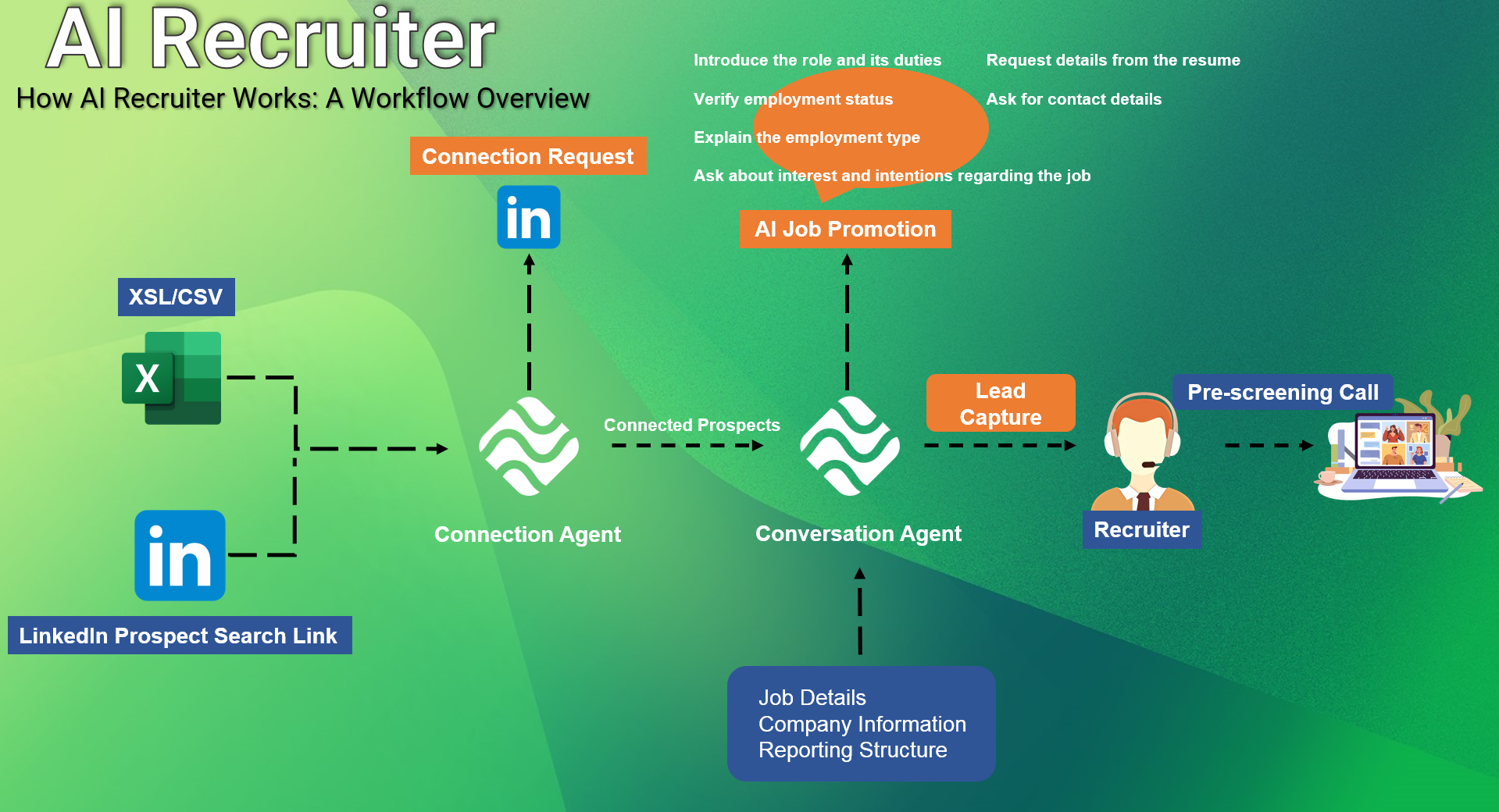Introduction
In regards to human resources, the introduction of the generative AI system represents a major shift in the way businesses are supposed to view both talent and optimal operation. However, the shift is not merely technological – to the companies, it implies a change in view and operations associated with HR to succeed in the continuously evolving data-driven world. StrategyBrain is fronting this change, being the player that can ensure changes take place in HR and assist companies in altering the way they hire and operate to succeed.
Implications of Using Generative AI in HR
The acceptance and application of the generative AI in human resource management have become so widespread that it is possible to announce without any hint of a doubt that a significant change in the industry has happened. Ultimate reports that more than 70 percent of HR individuals are using generative AI in relation to HR-related decisions. In addition, the global survey conducted by Tranglobal discovered that 60 percent of the professionals use generative AI technology, with 61 percent of the so-called “knowledge workers,” a workforce that uses a computer for work and some form of data, planning to do so by this year. According to the firm’s vice-president analyst, Javier Garcia, “we’ve found that 35 % of HR leaders expect to be accountable for the development of their organization’s enterprisewide AI ethics approach.” In other words, the technology has become a part of the industry through its adoption.
Research Findings
We have undergone this course at StrategyBrain and have been a part of integrating generative AI into our work. We have seen the effect of this technology first hand. HR departments can finally use technology to optimize the work that was previously performed manually, or semi manually. AI, for example, can process big datasets of resumes and data of the company to see trends that may be projected, but more importantly, to see challenges in advance. This generative technology provides opportunity analysis. Being asked to hire a manager, AI will automatically generate a report with all possible hires and compare them to other recruits.
Enhancing Communication with AI
Communication is the heart of HR. Recruitment, on-boarding, keeping staff motivated and internal policies, all is impossible without communication. AI, driven platforms have redesigned this area of HR, with a focus on greater efficiency, targeting, and larger impact. These platforms automate all HR communications, whether addressed to the whole staff or to certain groups. This has become possible due to the unprecedented personalization levels that a human employee cannot achieve. AI can personalize, automatically, any communication materials. An email regarding work will be personalized, taking the receiver’s role, locality, or their personal level of involvement into consideration, and so on. A transglobal and the Harris Poll study shows that people who used generative AI writing tools, were 52% more efficient and 50% more productive, while costs went 38% down.
Quality enhancement of work
Work quality could be enhanced with the help of generative AI in all HR areas. First of all, AI-powered analytics provides insights on employee performance, engagement, and probability of leaving. It can analyze HR-performance and provide personal feedback based on an individual’s skills and business goals. In addition, AI can forecast deviations and provide the ideal condition to reduce them. Work processes can be improved with AI that can identify opportunities for reinvestments and problems that haven’t been solved until the moment. Historical data is used to predict turnover and take preventive measures against it. For example, if there is a problem with the low engagement level, an AI-powered tool will predict the moment the employer is going to leave. Overworking is associated with the highest percentage in productivity loss. To avoid this, managers must track overtime and identify its reasons: inappropriate work organization or low motivation. Staff reduction takes time, and this organization can lose up to 33% of productivity during that period. AI can warn about issues that upset employees and make them leave. Low engagement is a major reason, and AI solutions in the HR area can schedule meetings and asks advice to keep employees engaged. Another use of AI is automation of frequent HR tasks: for example, AI can answer simple employee questions, sometimes even on their native language. This saves time for conceiving and planning strategic initiatives to improve retention, hiring, and engagement. NexGen research states that companies which use such tools are up to 35% more productive than those that do not.
AI in hiring
AI reduces the risk of communication and process mistakes that are often inherent in manual HR. Increased precision and speed of communication reduce the time it takes to fill the job and thereby increase employee satisfaction and engagement. However, to use it to fullest potential, companies need an in-depth understanding of AI technologies. The main companies provide special training programs aimed at improving the HR’s AI literacy. Such programs use a practical approach instead of trying to cover theoretical material applied to AI, ethics, and data privacy. Given that information technologies are constantly evolving, the development of a continuous learning culture is essential. With the help of this training, HR managers get an understanding of what can be achieved with AI so that they can accelerate innovation in their area and always stay one step ahead in talent and business development.
Strategic HR Technology Investment
Effective planning and investing in HR technology helps to enjoy the benefits of AI. Specifically, HR ought not to simply learn about avail AI tools quickly but to adopt them into their systems. When making investments in AI, HR should choose systems that fit into their strategies, enhance employee experience and boost operations. Investing appropriately in AI helps the firm in improving operations and building lasting relationships with their employees. For instance, one major ethical concern when hiring AI is data NDA and appropriate data use. As such, firms should depend on partners and algorithms that use ethical recruitment technology to assure the users safety.
Recruitment and Hiring AI Tools
AI hiring and recruitment tools lead to better job promotion, the identification of promising employees, resume screening, and asking the best questions to job seekers. In case of using these tools to recruit relation managers, one might assume that not even one skilled individual leaves the system unnoticed. Some Talent Recruitment AI tools today allow for aptitude testing continuously for any applicants. In this case, HR will spot promising candidates from the feasibility study and, thus, the process of hiring drastically shortens. Additionally, HR will manage to choose more than one possible candidates; also, using AI software shortens invitations to the testing significantly. Using AI software will reduce the workload, which means HR specialists place fewer and fewer advertisements and look for people to hire. When the sales department needs a new relation manager, they share their needs with HR, and the latter will be able to find potential employee within a day or two. Most importantly, software tools help HR workers to unload administrative work and focus on developing a strong relationship with existing employers and the long-term planning of the business, not short-term quick fixes.
How AI Changes HR Operations
Routine Task Automation
AI streamlines routine HR tasks such as scheduling meetings, sending reminders, and managing payroll. For example, IBM’s AI tools have reduced the time to fill vacancies by 50%, allowing recruiters to focus more on candidate fit and company culture. This shift not only improves efficiency but also enhances the quality of hires, leading to higher retention rates.
Strategic Decision-Making
AI enables HR professionals to make quick, data-driven strategic decisions. Algorithms can analyze vast amounts of data to identify trends and patterns, aiding in workforce planning and talent management. This frees HR specialists from time-consuming manual tasks, allowing them to concentrate on more impactful activities.
Employee Motivation and Job Quality
AI-driven platforms can gauge employee sentiment through surveys and feedback forms. This information helps HR to tailor engagement strategies, improving job satisfaction and overall productivity. For instance, Amazon uses AI to predict which employees are at risk of leaving, allowing HR to intervene proactively.
Benefits of Using AI in HR
Efficiency and Communication
AI enhances the efficiency of HR operations and improves communication between employees. Chatbots, like those used by Unilever, provide immediate responses to employee queries, freeing up HR staff for more strategic tasks. This not only streamlines operations but also boosts job satisfaction.
Enhanced Talent Management
AI tools help attract and retain top talent by offering personalized communication and feedback. Platforms like Deloitte’s “Performance Scouting” use AI to enhance feedback and appraisal processes, making performance reviews more meaningful and actionable.
Error Reduction and Problem Prevention
AI minimizes human error and provides predictive analytics to foresee potential issues. By analyzing data, AI can identify problems before they escalate, allowing HR to take corrective actions proactively.
Quality of Work and Employee Engagement
AI improves the quality of work by providing personalized development programs and training. This leads to higher employee engagement and productivity. For example, IBM’s AI tools have enhanced the recruitment process by focusing on candidate fit, resulting in higher retention rates.
Why Upskilling is Necessary
1. Future-Proofing Roles
a. Keeping HR professionals relevant in a world dominated by tech.
b. Reducing fear of jobs being wrapped up by empowering staff with updated skills.
2. Maximizing AI Potential
a. AI will be of massive use where it is needed.
b. HR teams can make a more informed decision when they are privy to the information.
How to Implement
1. Workshops and Seminars
a. Sessions based on the innumerable applicatory scope of AI in HR.
b. Coordinating certification courses from online or offline sources.
2. Mentorship Programs
a. Pair the ones not skilled in navigating the tools with the tech lob of the organization.
3. Hiring and Recruitment with AI
AI tools provide HR with different ways of interacting and knowing about the employees and their preferences. They render quick feedback and provide ample job satisfaction.
Real-life Examples
1. IBM
a. Integrates Watson to carry out the much-needed screening of candidates through scrutinization of CVs, social media profiles, and previous job performances.
b. It will imply if the candidate is suitable and has a likable nature.
2. Unilever
a. Introduction of chatbots to carry out the first scrutiny and interview of a candidate.
b. HR executives do not have to be worried about replying to questions. The chatbot is fast enough to sort as many questions as well.
Benefits
1. Personalization
a. Messages appear to be individualized.
2. Efficiency
a. No room for unwanded calls and queries.
3. Immediate Feedback
a. AI replies to all queries, making job satisfaction a literal mint.
Information About StrategyBrain
In our StrategyBrain, we deal with AI recruitment software technology. We develop and educate in the sphere of AI technology adjusting and finding business solutions to HR challenges, particularly AI, and generative AI technologies. Feel free to learn our innovative solutions to AI in HR.

